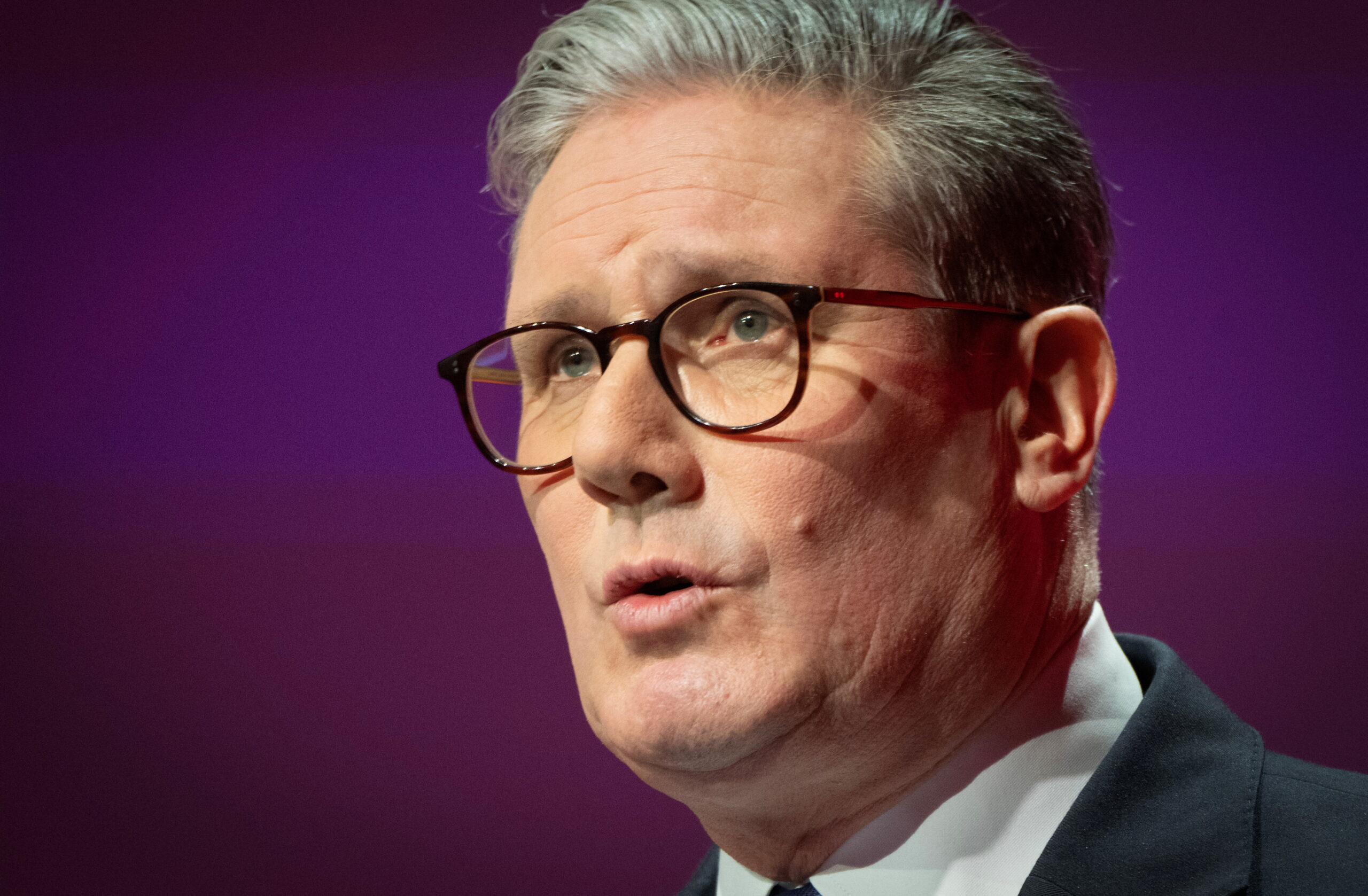Keir Starmer Is Driving Scotland Towards Independence. The Least He Can Do Is Let Us Go

A new poll gives Scottish independence a lead of 11%. This isn’t the first time that the ‘Yes’ side has clocked up a double digit lead. But it is the first time under a Labour government. And that’s significant.
A chunk of the Scottish population has had the same thought occasionally bubble up over the last decade: “Maybe we don’t need independence. Maybe we just need a Labour government.”
This idea, which has long acted as a dam holding back a reservoir of Scottish voters from supporting independence, isn’t new. It was the Labourism of 1945 which built Britain as a nation state, rather than the empire it had been pre-war, and dreams of Labourism which have ensured a portion of Scotland’s social democratic majority hesitated about supporting independence.
The best explanation for the generational divide on independence (overwhelming majorities of the young are in favour, overwhelming majorities of the old are against), is that older voters grew up with the social democratic Britain built after the war: the Britain of British Rail, British Steel and the National Health Service. The core ideology of these voters is a desire to return to that period, in both progressive and regressive ways. Those of us to come of age since devolution, meanwhile, see governance from Holyrood as normal, Westminster as a wart, and want to empower the former over the latter.
But this feeling that “maybe we don’t need independence, just a Labour government” exists across age groups. And it became the main counterargument for a cross-generational chunk of indy-curious Scottish voters, making them the main swing voters in the independence debate.
You can see these voters tipping back and forth in the polling history. During the Corbyn years, apart from a brief blip after Brexit, ‘No’ remained ahead. The prospect of a Labour government actually doing good things at Westminster kept these voters onside. During the pandemic – with Corbyn gone, Boris Johnson still popular in England and Nicola Sturgeon showing leadership – independence took the lead. As ‘partygate’ unfolded and Labour began to take the lead in UK-wide polls, support for independence fell, and ‘No’ nudged ahead.
In June last year, these long-term Labourists were joined by some soft independence supporters desperate to be rid of Tories at Westminster, and delivered Labour a firm majority of Scottish MPs, producing a clear red band across the central belt, from Dunbar to Dumbarton.
In its nine months in power, Keir Starmer’s Labour has done much to undermine that.
For some, the continued assistance to Israel as it genocides Gaza was too much. While people across the UK have been horrified by Starmer’s genocide complicity, polls over the years have consistently shown that Scottish voters have more sympathy with Palestine than voters across the UK as a whole.
For others, Starmer’s predilection for accepting freebies was a big turn off. Obviously English voters have a similar distaste for official corruption, but Scots have a more obvious path to escaping the stench of Westminster than English voters.
From October, most polls picked up narrow support for independence for the first time since it became clear that the Tories were on the way out. There were then a couple of clear leads for ‘No’ after Zelenskyy’s Oval Office meeting, and Starmer’s perceived leadership in response.
But then came Rachel Reeves’ spring statement. The government, she confirmed, was to make disabled people pay for the crisis of capitalism. Austerity – the very thing people voted Labour to try and escape – was back.
In itself, this string of disasters and moral failures seems to be driving Scottish swing voters towards independence, and turning soft Unionists into ‘don’t knows’. But there is a compounding effect.
These swing voters in Scotland have watched in horror as Reform has risen up the polls in England. While Nigel Farage’s party certainly has support in Scotland, it’s sitting at around 15% in the Holyrood polls – enough to win MSPs, but not enough to form the government. The UK-wide polls now often show the far-right party in the lead. And Westminster’s first past the post system means it’s not hard for Scots to imagine Farage strolling into Downing Street, triggering an urge to flee while we still can.
Or can we?
The last two Scottish parliament elections have both given the Scottish government a mandate to hold an independence referendum. On both occasions, Tory-led UK governments blocked it, relying on the fact that Britain’s prime minister has inherited the ultimate sovereignty of the king, and the prime minister can do what he or she likes.
No Labour prime minister has ever been confronted with this question. When Starmer came into power, it was on the back of smashing the SNP, and no one was seriously raising the prospect of an independence referendum last summer.
But there’s a Holyrood election next year. Current polling suggests that a pro-independence majority will be elected again, again with a mandate to hold an independence referendum. Today’s poll suggests that a ‘Yes’ vote is certainly a serious possibility. UK polling suggests it might be Scotland’s last chance to escape before Farage takes over at Westminster. Labour has historically insisted it accepts Scotland’s right to self determination, even if it wants us to choose to be in the UK. Starmer has done everything he can to drive Scotland out of the Union. At the very least, he must let us go.
Adam Ramsay is a Scottish journalist. He is currently working on his forthcoming book Abolish Westminster and has a Substack of the same name.


